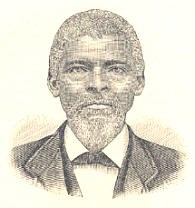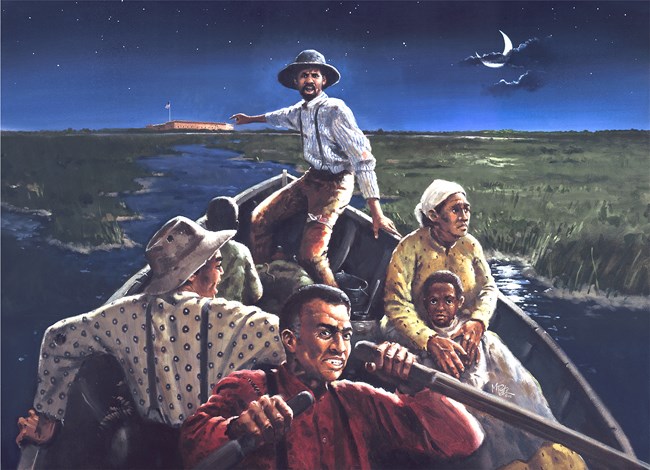
NYPL Digital Collection Marching to the Beat of a Different DrumThe story of March Haynes is a reminder of the legacy of African Americans actively participating in the struggle for freedom and equality in 19th century America. Like other well known and unknown men and women during this period he exemplified the fortitude, determination and courage it took to change the world.March Haynes was born on March 4th, 1825, in Pocotaligo, South Carolina. Little is known of his early life, however records indicate he was elected a deacon in the Wilmington Baptist Church in 1849 by the Reverend Jack Watry. In 1858, still in bondage, Haynes was brought to Savannah where he became the property of John C. Rowland. Mr. Rowland hired Haynes out as a boat pilot and stevedore, loading and unloading goods off ships. The practice of "hiring out" enslaved people was common in Savannah and a popular way for slave owners to maximize their profits. Working as a boat pilot Haynes gained valuable knowledge of the marshes and waterways of the Savannah river watershed. In 1861, John C. Rowland, enlisted into Confederate service and was sent to Fort Pulaski. He was accompanied by March who, still enslaved, was conscripted as a carpenter. Siege of Fort PulaskiFollowing the fall of Fort Pulaski on April 12, 1862, Union Major General David Hunter issued General Orders No. 7 . It stated that "All persons of color lately held in involuntary service by enemies of the United States in Fort Pulaski and on Cockspur Island, Georgia are hereby confiscated and declared free, in conformity with the law, and shall hereafter receive the fruits of their labor." In an interesting twist of fate, John C. Rowland surrendered and became a prisoner of war, and March Haynes became a free man. Haynes decided to stay at Fort Pulaski, becoming an operative for Union forces under the command of General Quincy Adams Gillmore of the Tenth Army Corps. Using his extensive knowledge of local marshes and waterways, Haynes carried out perilous reconnaissance missions and shepherded hundreds of enslaved people to freedom. 
NPS Photo Take Me to the River
|
Last updated: June 17, 2024
